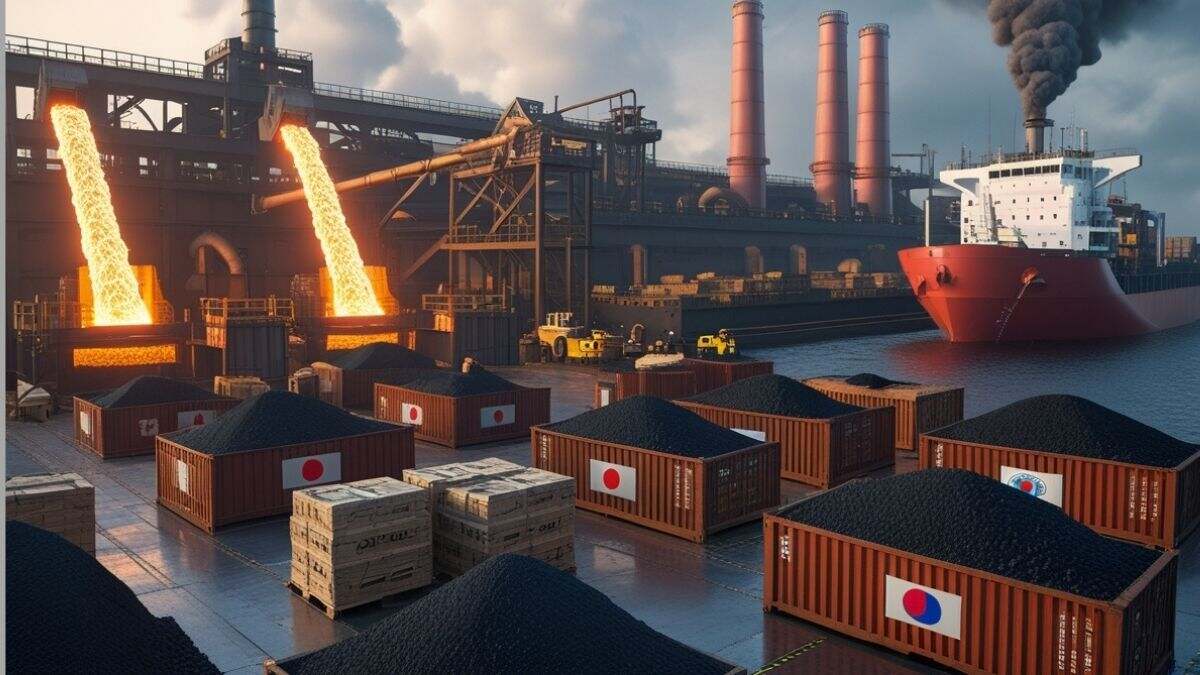The new tariff rate will apply to steel imports that exceed those restrictions, mirroring the practice of other countries like the US, which levies a 50% levy on imported steel.
To assist local manufacturers deal with the effects of Asian overcapacity and new trade obstacles imposed by the US, the European Union intends to increase duties on steel imports.
According to a source familiar with his remarks, Stephane Sejourne, the head of the EU’s industry, stated at a closed-door event on Wednesday that the European Commission, the EU’s executive branch, will suggest early next week a long-term mechanism that will also cut the bloc’s current foreign steel quotas by almost half.
The new tariff rate, which would parallel the practice of other countries like the US, which levies a 50% levy on imported steel, will apply to steel imports that exceed certain limitations.
Following the announcement, European steelmakers stock rose. Voestalpine AG increased by 4.7% to its highest level in almost two years, ArcelorMittal SA increased by 4.4%, Outokumpu Oyj increased by 5%, and SSAB AB increased by 8.7%.
A temporary mechanism that the EU has put in place to protect the bloc’s steel sector entails imposing a 25% tax on the majority of imports when quotas are satisfied. The commission has been trying to replace that system with a more permanent one, which it intends to disclose next week. The current mechanism expires next year.
The attempt to safeguard homegrown steel producers comes as EU leaders are debating ways to strengthen the bloc’s military capabilities in Copenhagen on Wednesday.
Polish Prime Minister Donald Tusk told reporters in the Danish capital, “Our reality now and tomorrow is security and security means weaponry and armaments means steel.” “We must defend our businesses, our Polish and European steel firms.”
Cheap imports from China and other Asian nations have caused a serious dilemma for the bloc’s steel sector in recent years. In addition, immediately after taking office, US President Donald Trump raised import duties on steel and aluminum to 50%.
According to a source acquainted with his comments, Sejourne said that while the EU still supports a global system that permits commerce, “we will not be the only ones to impose on ourselves the values that others no longer follow.”
Prior to this, Reuters had covered the new commission plan.
The plan, which might put more strain on energy-intensive businesses like the steel industry, comes as the EU considers a more stringent climate goal for 2040.
In order to address the detrimental spillover effects of global steel surplus capacity on the EU market, Eurofer, Europe’s steel organization, has been calling for stricter regulations to reflect changing market dynamics and a complete post-safeguard trade regime beyond 2026.
Axel Eggert, director general of Eurofer, said, “This is the first concrete action to promote our industry and support excellent employment in Europe.” “There must be more, however.”

